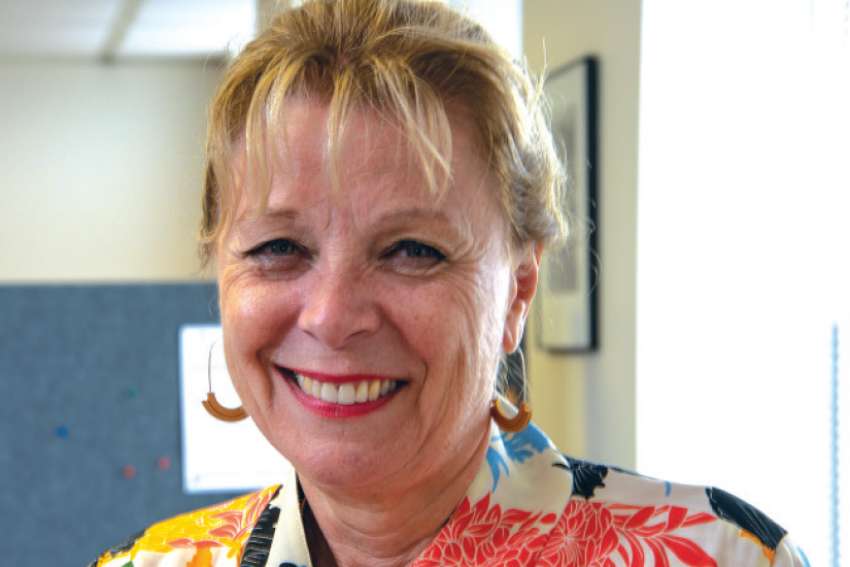“We are always concerned for the safety of the teachers and the challenges that they’re facing with our children with special needs,” said Bev Eckensweiler, a trustee at the Bruce-Grey Catholic District School Board who heads up the provincial association for Catholic trustees. “We’re not only looking at the teachers’ safety, but the other students as well.”
The government has faced considerable criticism for its proposed changes to funding for children with autism. Hundreds of parents from across the province attended a March 7 rally at Queen’s Park, the province’s three associations of principals raised concerns in a letter to Education Minister Lisa Thompson and teachers’ unions called the government’s autism initiative “rash.”
In response, on March 11 Thompson announced the government would provide school boards funding averaging $12,300 per autistic student to help integrate these children into the school system. The province also promised money for teacher training, additional funding to the Geneva Centre for Autism and expansion of an after-school skills development program for autistic kids to cover all 72 school boards.
By 2021 all teachers in the public education system will be trained in autism spectrum disorder, Thompson told reporters in Ottawa.
But the government response has left the Toronto Catholic District School Board with more questions. TCDSB chair Maria Rizzo called Thompson’s announcement “a small gesture.”
“It is simply not enough and there are still too many unanswered questions,” Rizzo said in a press release. “We have yet to hear from the Ministry of Education about what this will actually mean for our current and prospective students with autism.”
Toronto’s Catholic board has about 1,900 full-time students who lie somewhere on the autism spectrum. There are fewer than 25 students who attend part-time and are in therapy for the remainder of the week. The board expects approximately 100 autistic students currently not in school at all to begin attending schools April 1.
Though the board has yet to receive official explanation of Thompson’s funding announcement, board officials believe the $12,300 grants will apply only to new students.
The sudden announcement is still being analyzed by school boards, which at press time hadn’t yet received any details about how the money will be provided or limits on how it is spent, said TCDSB spokesperson Shazia Vlahos.
School principals across the province have been fielding calls from panicked parents who wonder what kind of support their children will receive, said Catholic Principals’ Council of Ontario president Jennifer Yust. Injecting thousands of autistic children into classrooms for the last two-and-a-half months of the school year seems very sudden, Yust said.
“We’re concerned about student well-being and the successful transition of these kids,” she said. “Staffing in schools has already been set for the year with the number of students that we had in September… Starting April 1, we do not have the staff and resources in place to program for these children.”
Educators are right to be worried about the provincial government’s plan to winnow down a list of 23,000 children awaiting individualized plans for therapy aimed at helping them adjust to school, said incoming president of the Ontario Association for Behaviour Analysis Kendra Thompson.
“We’re not talking about kids with a few bad behaviours,” Thompson said. “We’re talking about kids that are non-verbal, kids that are not able to use the washroom. Some, not all, are kids that might have serious self-injury behaviour. As far as I know, the teacher training does not provide specialized intervention.”
Many autistic children have a tendency to wander or even to bolt when faced with stressful situations, Thompson said.
“I would like to hope that no one is hurt, but I think the writing is on the wall,” she said. “If you put many, many children with various high needs into a classroom setting, with maybe one teacher, maybe an additional EA if they’re lucky, that’s going to cause a lot of potential for harm — not only to the person themselves but maybe to others in the environment, the educational staff.”
The sudden inclusion of autistic kids in regular classrooms comes on top of other cuts coming down from Queen’s Park, OECTA president Liz Stuart said.
“Not being able to offer quieter spaces at times, not being able to offer the one-on-one support that might be necessary — quite frankly in most schools that’s nearly impossible to do because the resources just aren’t in place,” Stuart told CBC Ontario Morning host Saroja Coelho.
The 2,100 Catholic principals and vice principals in Ontario aren’t objecting to the idea of an integrated classroom that includes autistic and special needs students with the regular school population, said Yust.
“We’re Catholic schools. We’re big supporters of equity and inclusion,” she said. “But if you don’t have that support, if a child is struggling, then it’s just not good for anyone.”
The additional school funding is separate from a new autism policy that will provide families up to $20,000 per year to treat children under six and up to $5,000 per year for children six to 18. Actual amounts a family will receive depend on family income and only families with a net income of under $55,000 a year will receive the full amount. The intensive therapy recommended by autism experts can cost as much at $80,000 per year.
This plan will cost $321 million per year, the same amount budgeted by the previous Liberal government for home-based intensive therapy.
Support The Catholic Register
Unlike many other news websites, The Catholic Register has never charged readers for access to the news and information on our site. We want to keep our award-winning journalism as widely available as possible. But we need your help.
For more than 125 years, The Register has been a trusted source of faith based journalism. By making even a small donation you help ensure our future as an important voice in the Catholic Church. If you support the mission of Catholic journalism, please donate today. Thank you.

